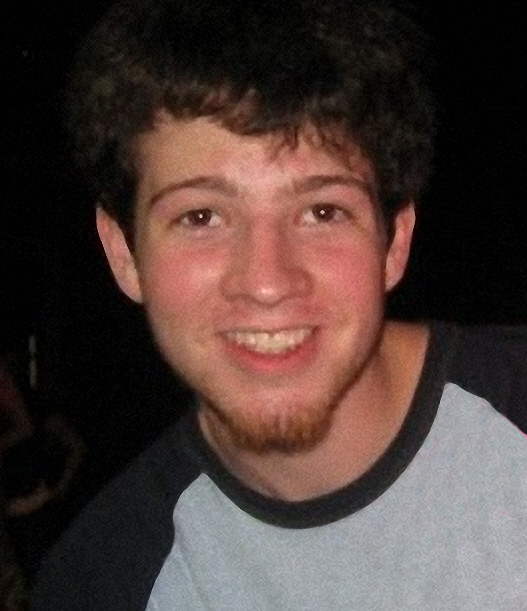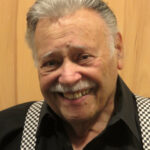The Union for Reform Judaism publishes a wonderful educational resource called “Torah at the Center.” In preparing for the Fall 2010 issue on “God and Reform Judaism,” they asked if I would write about how the death of a loved one can change one’s views on God. While I can’t speak for anyone but myself, here is what I sent them.
As a rabbinical student, I was required to defend an intellectual argument for my personal belief in God, a position which my instructor thoroughly annihilated with a few well-placed philosophical thrusts. Theologically traumatized, it was many years before I understood that God is not so much what we can prove via our cerebral prowess as it is about what we can deeply feel inside … about ourselves, about the world we live in, about the people we share it with, and about what we’d like our role in it to be. Since even the soundest intellectual constructs of God are susceptible to being poked, prodded and deconstructed by those who find value in doing that sort of thing, I’ve since chosen to build my relationship with God on admittedly flawed, inconsistent and contradictory feelings (yes, feelings!) about the universe.
For the first fifty-two years of my life, I grew pretty comfortable living in a world I felt to be of God’s making, and expressing gratitude for the gifts bestowed by our Creator day in and day out. The particular gifts which I prayed about (Jewish prayer primarily being time when we show appreciation for what we have, as opposed to petitioning for what we want) are perhaps more familiar in a science lab than in a worship space: laws of gravity, of thermonuclear dynamics, and of quantum mechanics. They may not seem much like the warm and fuzzy birthday presents we receive from people who love us, but they’re the basic building-blocks of life which we humans rely upon to get out of bed each morning and to do constructive things with our days (like bringing warm and fuzzy birthday presents to people we love).
I had never believed in any sort of afterlife. Scientifically, it never made sense to me, and I was more than okay disappearing into the earth upon my physical demise. My theological outlook was that you and I have been granted by our Creator a great gift called life, and we ought to try and do worthwhile things with it while we’re alive because when we die, it’s all over.
What I hadn’t counted on was someone dying whose life was more precious to me than my own, and my comfortable theology being turned on its head. In March 2009, my son, Jonah Maccabee Dreskin, died while he was away from home for his freshman year of college. An amazingly bright, funny, talented and exceedingly kind young man, Jonah’s death left me with a broken heart and more than a handful of questions.
The first question, “Why?” – although it certainly came to mind often – was never the one to which I seriously needed an answer. I respect the laws of nature that manage our physical world, and I’m grateful that God enforces them (i.e., that they remain in effect forever and for all of us). So as much as it hurt when Jonah died, no explanation was asked for, or needed by me, from God.
But the question that dogged me took me by complete surprise: “What happens after we die?” Since I had assumed that the death’s significance with which I needed to grapple was my own, I was comfortable leaving this question alone. Whatever happens, happens; I’ll see it (or not) when I get there. But now it’s my son who has gone “there” and, contrary to every reasonable idea I’ve ever had about where we go when we die, I now find it’s become incredibly important to me that we go on existing in some familiar way after we’ve left our earthly body behind. Simply put, my head may not think an afterlife exists, but my heart pumps a much louder, more emotionally compelling, message: I want to see my boy again.
God may exist at some infinitely great distance from us that precludes our ever knowing or understanding just what God is or does – not at all unlike the distance between the Big Bang and science’s ability to see the universe 10-43 seconds after the Big Bang (“Planck’s Constant”). For most of us, while the Big Bang is an important challenge to how we understand God, it’s likely that the Big Bump – the scrapes and bruises life hands us as we scurry and stumble from its greatest heights to its most awful lows – will play a leading role in what we find ourselves choosing to believe about God. For me, it’s the distance from my heart to a 19-year old I won’t ever get to hug again, at least not in this lifetime, that, these days, fires my theological quest and my leaps of faith.
Billy
You can view the Union for Reform Judaism’s entire issue of God at the Center at http://urj.org/learning/teacheducate/publications/tatc (click on “Vol 14, No 1, God”).







1 comment
Join the conversationMargeTheMaven - October 22, 2010
Beautifully put, and totally true for me. As the years pass after my son's sudden death at age 12, I find myself noticing his presence more than his absence, and I believe and want to believe that it's just as real. Sending you a warm virtual hug — Marge